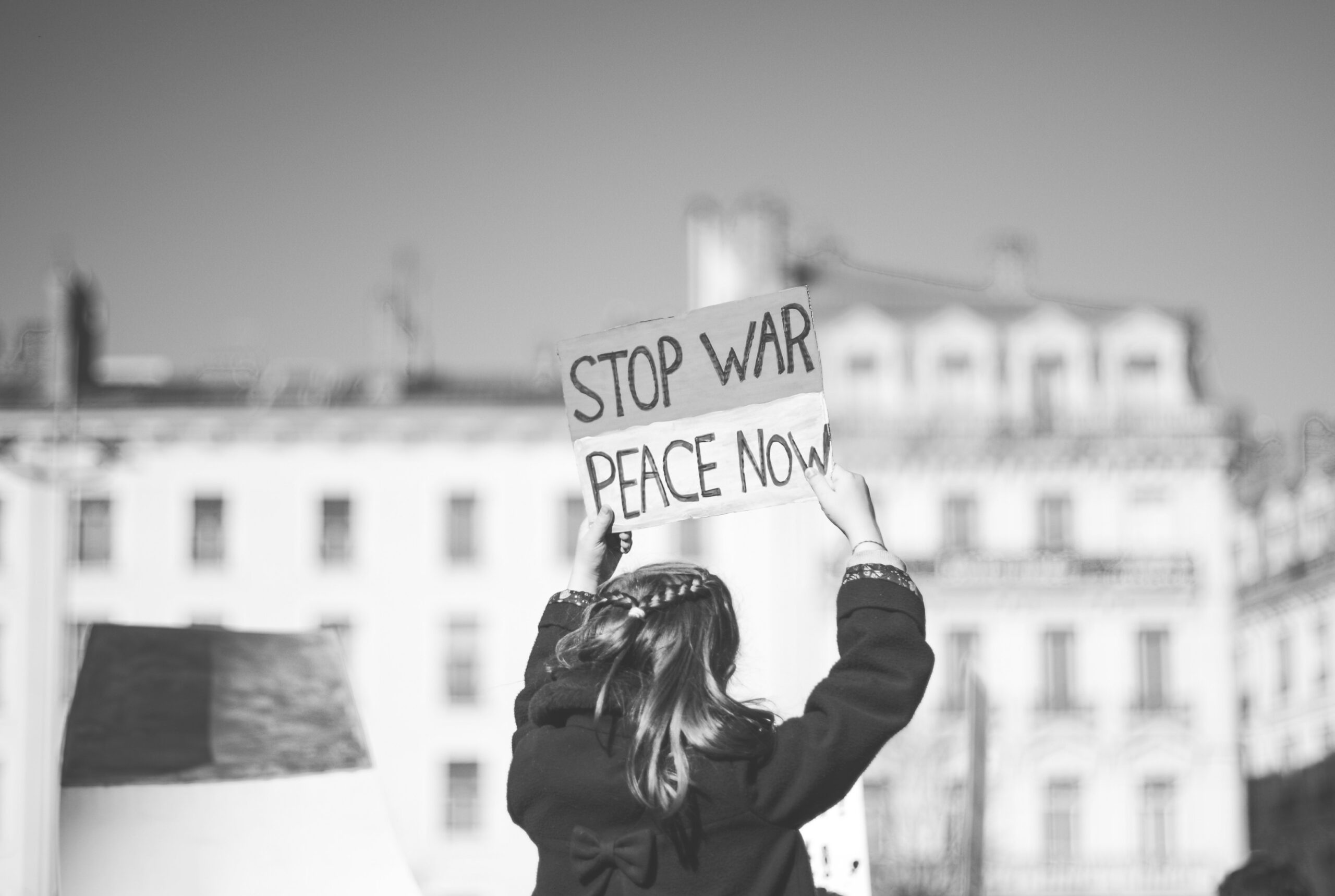
Peace is not only a fundamental human need but also a key factor for the well-being and development of future generations. The absence of war is essential as it creates an environment where succeeding generations can unlock their potential. This directly impacts the quality of life and future opportunities for today’s youth and future generations.

The Charter of the United Nations signed in San Francisco on 26 June 1945 starts with the words ‘We the peoples of the United Nations determined to save succeeding generations from the scourge of war, which twice in our lifetime has brought untold sorrow to mankind […]’. The Charter was formulated and signed under the impression of the recently ended Second World War, which was the single event with the sharpest decrease of human welfare in history.
Wars and violent conflicts have devastating consequences for society. They result in loss of life and health, destroy communities and infrastructure, disrupt social progress, and often leave long-lasting trauma. It is our responsibility to ensure that today's youth and future generations yet to be born do not experience these miseries.
The possession of nuclear weapons gives humanity, for the first time in history, the means to bring about its own extinction. While the global number of nuclear warheads has been declining since the 1980s, the nuclear-armed states (USA, Russia, UK, France, China, India, Pakistan, Israel, and North Korea) are modernising their arsenals. Central to this is the development of tactical nuclear weapons, which make nuclear use more likely because they can be deployed more precisely.
The war in Ukraine and the growing tensions around Taiwan have made the use of nuclear weapons more likely than ever before (cf. Doomsday Clock). Moreover, the distrust between nuclear armed states, the consideration in neighbouring states of developing their own nuclear weapons, the cancellation of disarmament treaties between USA and Russia by Trump and Putin, the increasing use of automated systems, and the destabilised security situation in the Middle East, are just some of the current challenges. Research on existential risks to humanity (see the special issue of Intergenerational Justice Review 2022 as a result of the 2022 Intergenerational Justice Award) assumes a relatively high probability of large-scale use of nuclear weapons, within the lifetime of a child born today. Humanity cannot afford to rely on nuclear deterrence; the current approach to nuclear weapons is not sustainable.
Peaceful cooperation (positive peace) goes beyond the absence of armed conflict (negative peace). In a stable peace order, military or defense spending would be very limited, and the financial resources needed to maintain and modernise nuclear arsenals would become completely unnecessary. More financial resources could be invested in areas such as education, health care, poverty reduction and the fight against climate change, for the benefit of present and future generations.
Securing long-term peace requires actions at individual, local, national, and international levels. "Positive peace" demands building trust and promoting dialogue among nations, cooperating in conflict prevention and resolution, strengthening institutions for peace and justice, promoting human rights, and pursuing sustainable development. The participation of all generations, regardless of age, gender, or social background, is of great importance. Young people can play a crucial role in creating and maintaining peace. Their voices must be heard, and their involvement in decision-making processes must be facilitated.

